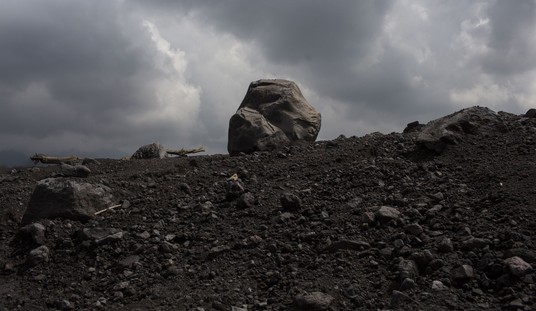The New York Times notices that a completely predictable reversal has taken place between Barack Obama, John McCain, and media coverage. Two weeks ago, the national media followed Obama devotedly as he toured Europe, straining to capture every word on what they considered a historic event. Now, though, the media has awakened to truly historical events in the Caucasus, and McCain has commanded their attention with his leadership — while Obama hides in Hawaii:
For the last several days, Senator Barack Obama has seemed to fade from the scene while on his secluded vacation here, as his opponent, Senator John McCain, has seized nearly every opportunity to display his foreign policy credentials on the dominant issue of the week: the conflict between Russia and Georgia.
Only once, at the beginning of the week, did Mr. Obama discuss the fighting in public, when he emerged from his beachfront rental home to condemn Russia’s escalation, in a way that seemed timed for the evening television news. He took no questions whose answers might demonstrate command of the issue.
Mr. McCain and his surrogates, however, have discussed the situation nearly every day on the campaign trail, often taking a hard line against Russia to the point of his declaring the other day, “We are all Georgians.”
It is as if the candidates’ images have been reversed within a matter of a few weeks. When Mr. Obama was overseas last month, Mr. McCain’s foreign policy bona fides seemed diminished, if only because he could not attract the news media attention received by Mr. Obama, the presumptive Democratic presidential nominee. Now, Mr. Obama’s voice seems muted at a time when much of the world has been worriedly watching the conflict.
Team Obama tries to spin this as a quiet engagement on Obama’s part. They claim that he has been in constant contact with his team of foreign-policy advisers while vacationing on the islands. Those advisers, though, can’t agree among themselves, as Susan Rice and Richard Holbrooke demonstrated when they alternately criticized McCain’s approach and then bragged of having the same policy.
McCain spent the week leading the American response in a real way, forcing the White House to catch up. Obama spent the week … body surfing and golfing. For a candidate who already has a confidence deficit on national security and foreign policy among voters, Obama seems strangely disengaged on what is the most crititcal and emergent foreign-policy issue of the campaign. He has taken a strangely passive path, and the contradictory statements by his surrogates have made Obama seem even more vacillating than usual.
Most interestingly, the media has finally started to notice. Michael Falcone’s article acknowledges McCain’s superior performance, an acknowledgment that finds its basis in McCain’s experiential advantage. The media has flocked to McCain for answers on a genuine foreign-policy issue, and more or less abandoned Obama and his team. He has become almost irrelevant in the Georgian crisis, made so by his own abandonment of the field.
It’s an interesting and revealing parallel to the kind of media frenzy Obama attracted in Europe but did nothing to earn. McCain has earned the attention for being prescient and informed on the crisis in Georgia and the nature of Russia. The former is the attraction of celebrity, and the latter the attraction of leadership, and American just got an object lesson in the differences between the two.








Join the conversation as a VIP Member